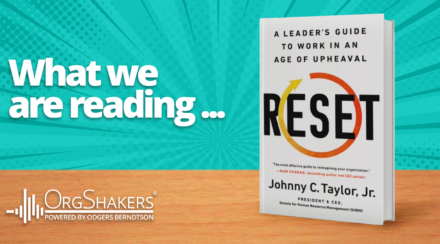Menu

How can Employers Support New Mothers Returning to Work?
At the beginning of February, I was fortunate enough to become the mother to a beautiful baby girl. Now, as my maternity leave has come to an end, I am also fortunate enough to be transitioning back into my work very smoothly.
A lot of employers may believe that supporting mothers returning to work starts the first day they get back, but this is a common misconception. Before returning, it is a great idea to be touching base with your employee – see how they’re feeling about coming back to work, how they’re feeling in general, and get a feel for how deep they want to dive back in upon their return. This mental health check-in can be so helpful for an employer to gain a real insight into what is going to be the best and smoothest way to support a mother as she transitions back into work mode.
This doesn’t mean, however, that employers should be consistently in contact. While a check-in should be essential, it is just as important to respect that time that the mother is away with their baby. Maternity leave can sometimes be misconstrued as vacation, but it isn’t by any means.
In terms of the actual period of return, the most important thing an employer can do is keep a open line of communication. Every mother is going to have a unique experience, and so the ability to offer flexibility is going to be so vital. Some mothers are going to need time to express if they are breastfeeding, and so it is important that for in-office work, there is a dedicated and private space for this to happen.
As well as this, it is fairly common for a mother’s mental health to be affected after giving birth. Around one in seven women can develop postpartum depression, and what is less talked about but is just as prevalent is that 10-15% of new mothers suffer from postpartum anxiety (which involves worrying all day, everyday that something is wrong or could be wrong with your baby, and this can lead to suffocating feelings of anxiety, panic attacks and the exhibition of agoraphobic tendencies). If an employer recognises signs of a new mother struggling with these conditions, or it has been communicated to them, it is important to have the right support in place – which could be an in-house employee assistance program – or to direct them to the right place for external support such as Mind and/or Postpartum Support International.
I think as a final point, employers must be vigilant to the biases and preconceived notions that come with a female worker becoming a mother. There is a shift that takes place, and it can sometimes feel like your identity and your place in a company enters a state of flux after returning from maternity leave. Opportunities can feel scarcer and harder to reach because of biases like, ‘oh, she won’t have time for that with the baby’ or ‘she’s got enough on her plate with the baby’. This is probably why 41% of working parents believed that being a parent was holding them back from a promotion at work. So, in this sense, it is important to look at the culture of an organization and ensure that these mindsets are not instilled or prevalent, and instead coach the perception that it is possible to exist as both a mother and a worker – the two are interlaced, they are not parallel.
Knowing how to properly support working parents means employers will know how to effectively optimize their performance and productivity right from the outset. The transition back to work is going to set a tone for the coming months, and so striving to make this smooth and easy for the mother (or parent) returning will pay off for both employer and employee. To discuss how to implement these strategies into your workplace, please get in touch with me at stephanie.rodriguez@orgshakers.com



